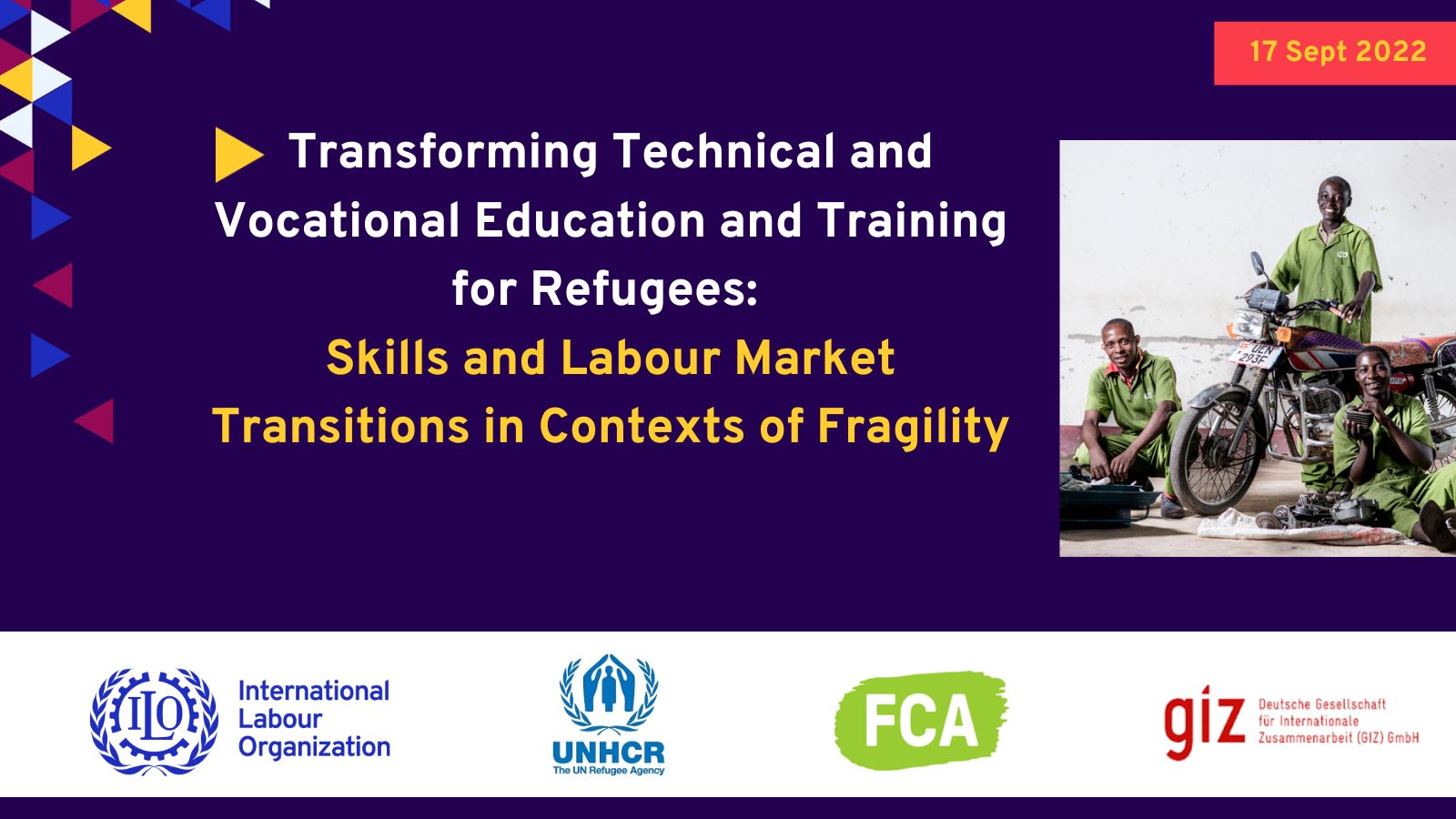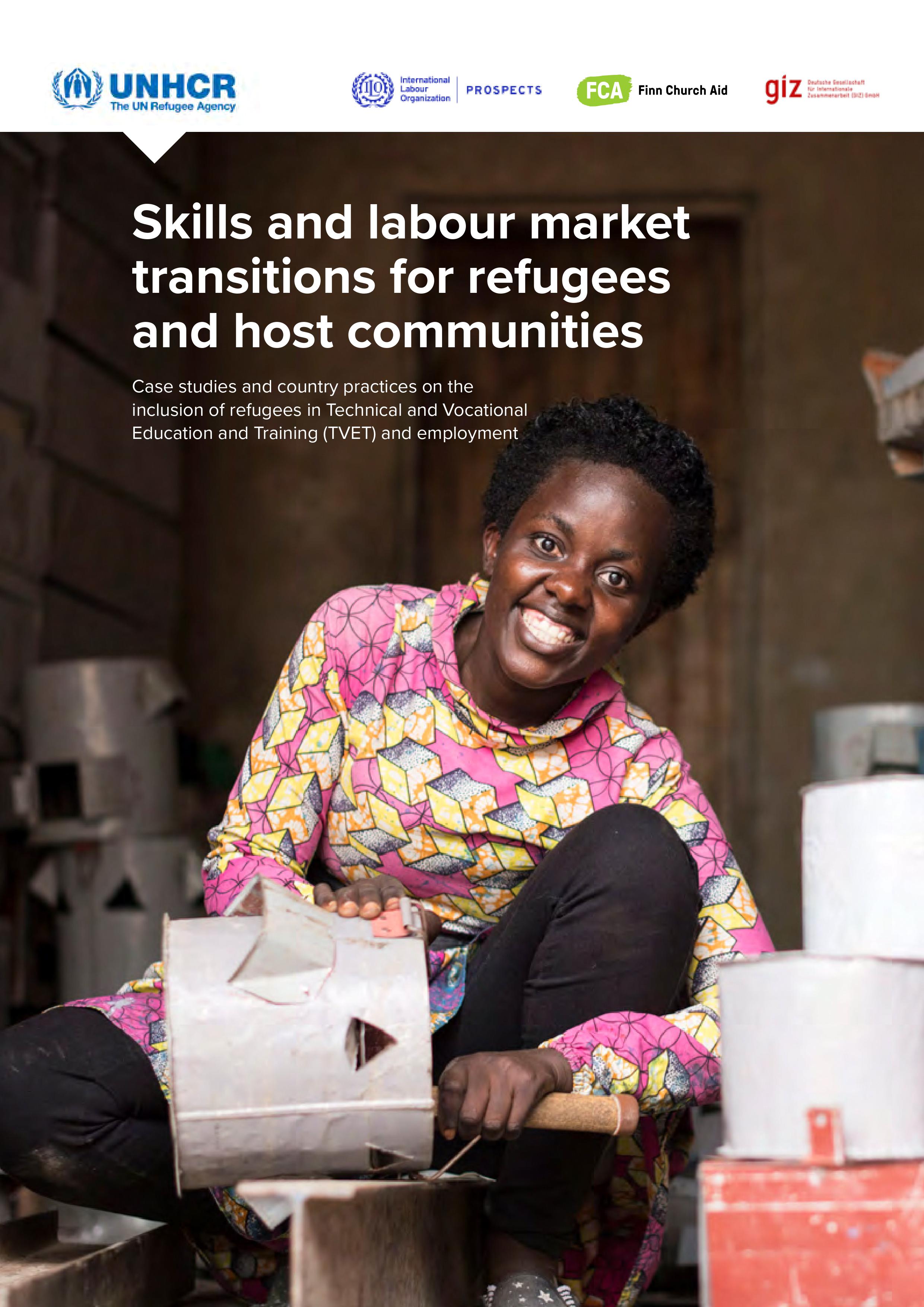Transforming Technical and Vocational Education and Training for Refugees: Skills and Labour Market Transitions in Contexts of Fragility
The United Nations Transforming Education Summit - TES: Solutions Day aims to mobilize collective actions and initiatives around Thematic Action Tracks - that require greater attention and action to accelerate progress on the education 2030 Agenda and transform education. This event will contribute to the second Thematic Action Track of "Learning and skills for life, work, and sustainable development".

Background
The Transforming Education Summit spotlights five areas (“Thematic Action Tracks”) that require greater attention and action to accelerate progress on the education 2030 Agenda and transform education:- Inclusive, equitable, safe, and healthy schools
- Learning and skills for life, work, and sustainable development
- Teachers, teaching and the teaching profession
- Digital learning and transformation
- Financing of education
Co-organizers
- Finn Church Aid (FCA)
- Government of Finland
- Deutsche Gesellschaft für Internationale Zusammenarbeit (GIZ) – Government of Germany
- The United Nations High Commissioner for Refugees (UNHCR)
- International Labour Organization (ILO)
Summary
The session will launch the report “Skills and Labour Market Transitions for Refugees and Host Communities”, a joint collaboration between UNHCR, the ILO, GIZ and FCA. During the event, participants will be UNHCR, the ILO, GIZ and FCA. The event will:- Present key study suggestions/ recommendations and success factors and build an evidence base for the successful inclusion of refugees and IDPs into TVET programmes, and their transition to the world of work.
- Present the key building blocks for a holistic, quality TVET delivery as part of the education systems of an emerging economy
- Highlight best practices that can inform and guide TVET programming at the national level, particularly those that emphasize partnerships.
- Support TES thematic action track 2: learning and skills for life, work and sustainable development
Speakers
Session moderator: Matthieu Cognac, Multilateral Cooperation Specialist, ILOMinister Remarks
- Ms. Li Andersson, Finnish Minister of Education
- Jordanian Ministry representative
- Kenyan Ministry representative
Panelists:
- Ms. Ruven Menikdiwela, UNHCR Representative, New York
- Mr. Oliver Liang, Unit Head, ILO Sectoral Policies Department, ILO
- Mr. Tobias Erbert, Program Coordinator, Qualifications and Employment Perspectives for Refugees and Host Communities in Ethiopia Programme (QEP)
- Mr. Wycliffe Nsheka, FCA Country Director
- Ms. Jonalie, Congolese youth refugee and blacksmith, Rwamwanja Refugee Settlement
- Closing Remarks by Dr. Heike Kuhn, Head of the Education Division at the Federal Ministry for Economic Cooperation and Development (BMZ)
About the study

In the joint study Skills and Labour Market Transitions for Refugees and Host Communities the partners identified solutions to overcoming barriers in accessing TVET. The study also pinpointed best practices for an effective transition to the labour market and recognized success factors regarding retention in, and completion of, TVET programmes.